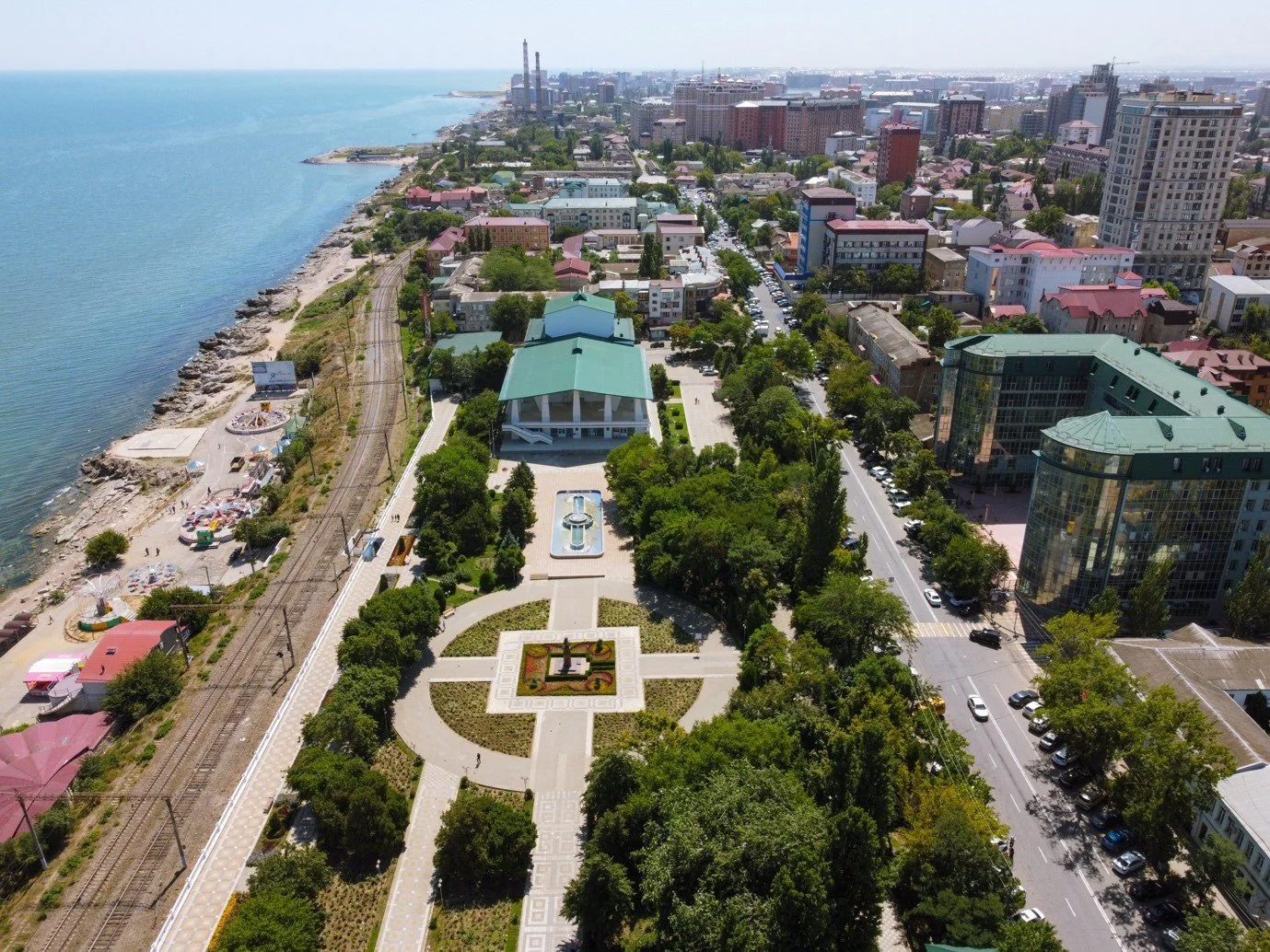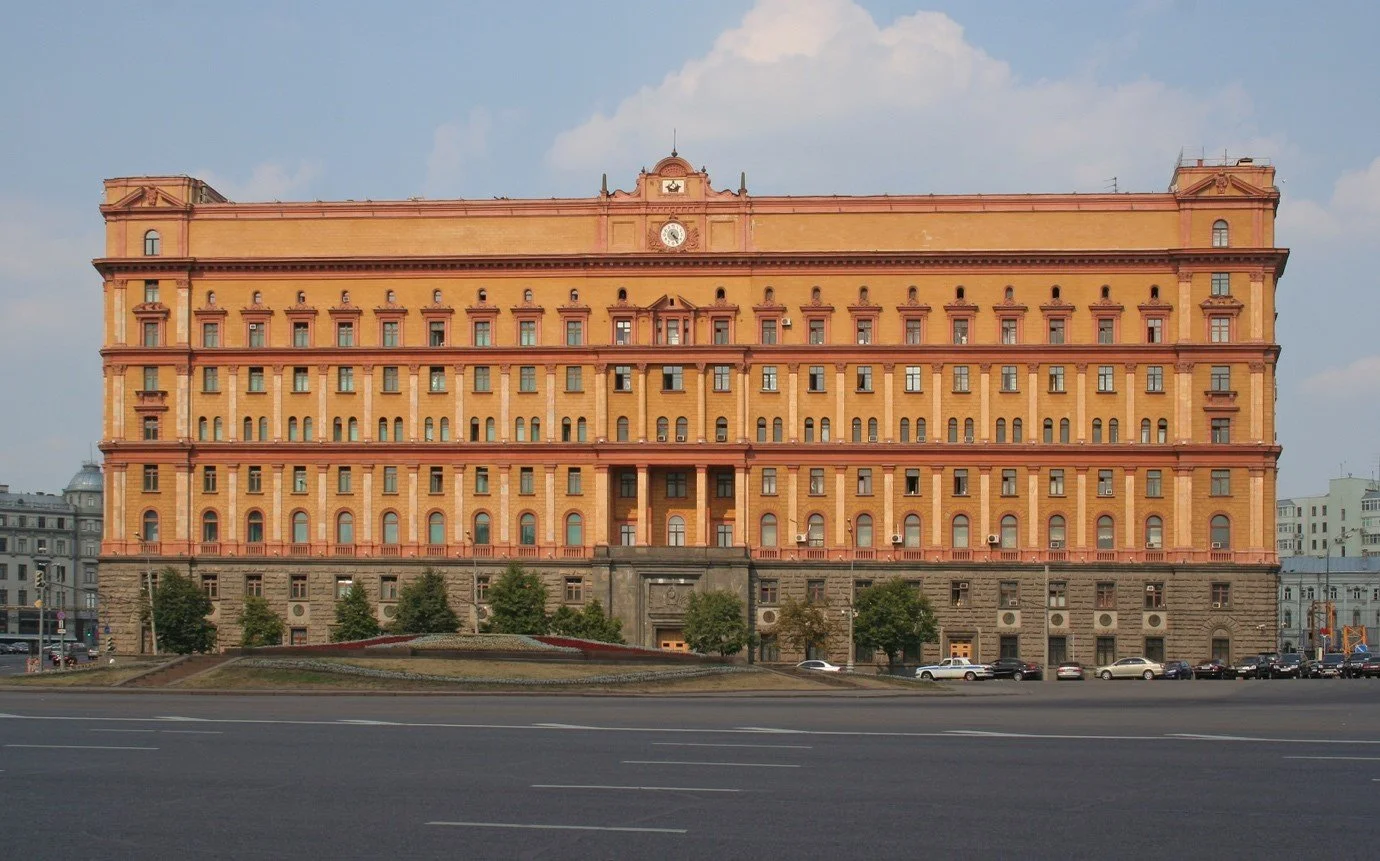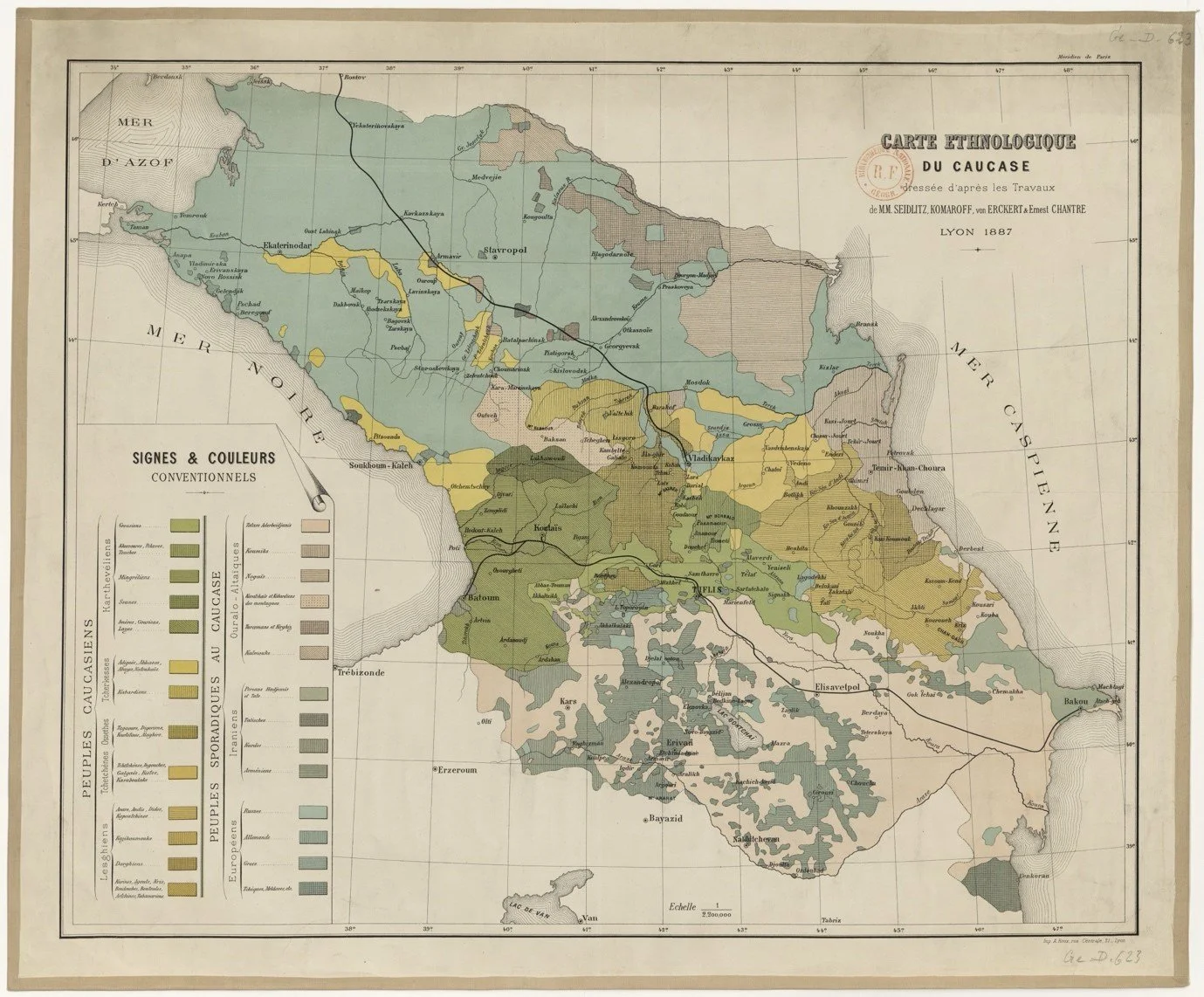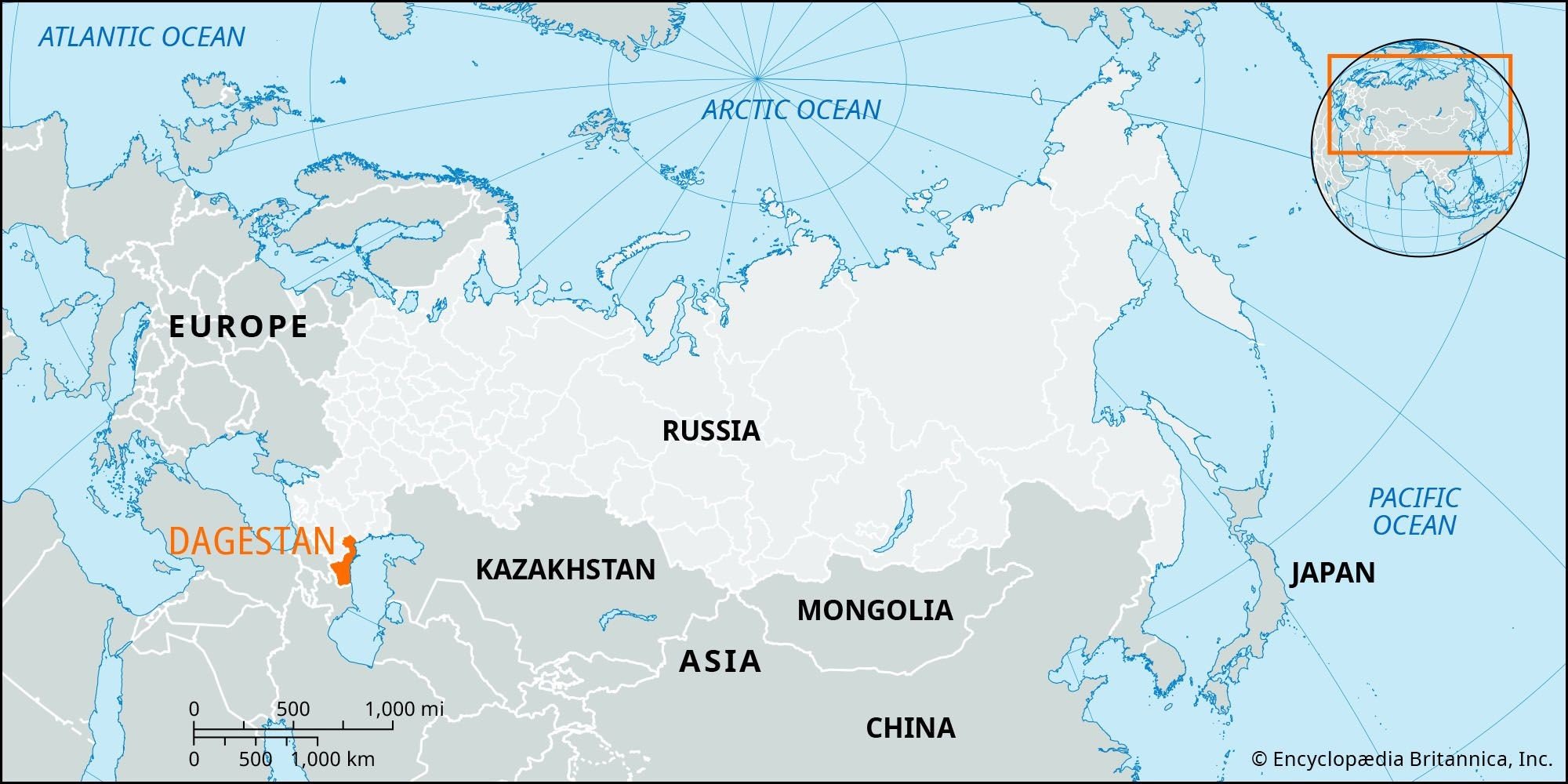Gadzhi’s Story: The Political Roots of His Persecution
Author: Armando Garcia
Gadzhi is a Dagestani asylum seeker and political refugee who, along with his wife Mariiam and their child, fled persecution by Russian authorities and is currently facing possible deportation from Iceland to Croatia under the Dublin Regulation. He and his family entered Croatia on December 5th, 2024, but left the same day for Zagreb, where they stayed overnight; on December 6th, they traveled to Budapest, and on the 7th, they flew to Iceland.
Gadzhi’s persecution began in Russia on politically motivated charges. His immediate family, mother, sister and brother, had already received political asylum and permanent residency in Iceland. However, Gadzhi’s asylum application, mishandled by a state-appointed lawyer who failed to disclose his family’s international protection status, was processed through the Dublin system, designating Croatia as the proposed deportation destination, even though Croatia had initially refused to accept them back.
The village of Tindi, in Dagestan, in the late 1890s, Moriz von Déchy (1851-1917)(Source: Wikipedia)
Gadzhi was born in Makhachkala into a large, well-educated family. His father owned a construction company, while his mother was the director of a kindergarten, as well as a public figure and leader of the "Women of Russia party" in the North Caucasus. After graduating from school, Gadzhi enrolled at the Faculty of Economics and Finance at a university in Makhachkala.
At the same time, Gadzhi’s mother was dismissed from public office for anti-Putin remarks, marking the start of the family’s persecution. Fearing for his life, Gadzhi and his parents moved to Moscow in 2014, where they worked in the family’s dairy production business.
In August 2016, during a brief visit by his parents to Dagestan, Gadzhi was kidnapped. A month later, two Moscow journalists from Russian Reporter, Marina Akhmedova and Alexei Pivovarov, accidentally found him in a cell at the Lenin Police Department in Makhachkala while investigating an unrelated case. Recognizing them by their press badges, Gadzhi called out, asking them to contact his parents and giving them his mother’s phone number.
A recording of this exchange appears in a documentary film. The journalists later reported that Gadzhi was in poor condition and being tortured to extract a confession. They offered to testify.
Soon after, a fabricated criminal case was brought against him. Despite his family’s determined efforts, they could not overcome the political nature of the prosecution, a fact later confirmed in a secretly recorded conversation with the FSB (Federal Security Service of the Russian Federation) officer in charge. Through corrupt connections, the judge sentenced Gadzhi to five years in a Siberian prison, where he endured prolonged solitary confinement and torture. He was released in August 2021. By then, his family had already fled Russia, concealing their whereabouts to avoid retaliation.
Makhachkala, capital of Dagastan. (Source: Wikipedia)
During his prison confinement in a glass box, Gadzhi was repeatedly interrogated about his family´s location. His mother had fled to Iceland after making a public speech in Makhachkala, capital of the Republic of Dagestan, condemning Vladimir Putin as a terrorist and accusing the Russian regime of orchestrating domestic bombings, including the infamous 1999 Ryazan incident, to justify its brutal wars in the North Caucasus.
Putin’s Ascent to Power and the Dawn of a New Russian Authoritarianism
On August 9, 1999, Vladimir Putin, former head of the Federal Security Service (FSB), successor to the KGB, who had served in East Germany during the Cold War and begun his political rise in the foreign affairs office of the St. Petersburg mayor’s office, was appointed prime minister.
Putin took office with a mandate to combat “terror”. Russian politics and its leaders have long excelled at redirecting attention toward external threats and adversaries as a way to deflect from internal contradictions, sustaining social order and consolidating political power at home. Following a series of attacks, Putin launched a successful offensive in Chechnya, after which the attacks ceased. This bolstered his popularity and credibility just ahead of the 2000 presidential election. Portrayed as a strong leader untainted by previous administrations, Putin emerged as a fresh alternative in the eyes of the public.
In September 1999, a series of bombings destroyed apartment buildings in Buynaksk, Moscow, and Volgodonsk, killing over 300 people and injuring thousands, sparking widespread fear and triggering the Second Chechen War, events that significantly boosted then-Prime Minister Vladimir Putin’s political rise. While the Russian government blamed the national liberation front of the Chechen republic of Ichkeria and several suspects were convicted, the evidence has been widely disputed, and critics, including former FSB agents and independent investigators, have accused Russian security services of orchestrating the attacks as a false flag operation to consolidate power.
Attempts at independent investigation were obstructed by the state, with key investigators assassinated, imprisoned, or silenced, and the Ryazan incident, where a similar bomb was planted and then dismissed by the FSB as a “training exercise”, remains one of the most controversial and suspicious episodes in modern Russian history. Despite the horrific conditions of occupation, both the people and officials of Chechnya have openly organized and publicly expressed their support for Ukrainian Prime Minister Yulia Sviridenko, as well as for the people of Ukraine and Gaza.
The 1999 Apartment Bombings: A Turning Point in Russia’s Political History (Source: AP Photo/Ivan Sekretarev)
On December 31, 1999, Yeltsin resigned from the presidency, handing it over to Putin. In doing so, he ensured that his successor would be an ally, thereby avoiding potential legal complications, since he was suspected of corruption and the revocation of his legal immunity was being considered. Once appointed president, Putin had three months to call presidential elections. Thanks to a successful campaign in Chechnya, relative control over the media, and an improvement in the economic situation due to rising oil prices, Putin had no difficulty defeating the only opponent capable of challenging him at the time (Gennady Zyuganov of the Communist Party of the Russian Federation).
In a speech recorded and circulated on YouTube, Gadzhi´s mother is seen making her public speech in Makhachkala which resulted in increased pressure on the family, surveillance, home raids, and public harassment.
Protest in Makhachkala, the capital of Dagestan: Gadzhi’s mother is silenced by a state official during a public outcry.(Source: YouTube)
Coercion, Torture, and Illicit Deportation
FSB Headquarters, Lubyanka Building, Moscow(Source: Wikipedia)
After attempting to escape Russia via Turkey, Gadzhi was unlawfully detained in Azerbaijan and secretly extradited to Russia without legal documentation. He was held in an FSB-run anti-terrorist center, then moved between facilities under fabricated charges. Journalists who encountered him managed to contact his mother after he discreetly passed them her number. His case was marked by systemic illegalities: falsified charges, denial of due process, and state denial of evidence, including video recordings and testimonies that could have proven his innocence. FSB officers openly admitted in private recordings (later included in a documentary) that they had “legalized” him, which entails that a criminal case had been fabricated to justify his detention. They further implied that, if not for the public attention, he would have disappeared without a trace. These statements were later used as evidence by his family in exile.
The documentary The FSB is cloning terrorists and extremists exposes the brutal machinery of repression and legal manipulation employed by Russian state security forces, particularly the FSB, under the guise of counterterrorism. Framed within a broader critique of Russia’s transformation into a criminal-terrorist state, the narrative centers on the abduction, drugging, and judicial framing of Bogandav Gadzhikhezrievich, an autistic young man falsely accused of preparing to join terrorist groups. The FSB, operating with impunity, kidnapped Bogandav in Dagestan, tortured him, and extracted a coerced confession to justify retroactive legal charges under Article 208.
The account outlines how this “legalization” process involves falsified protocols, contradictory arrest records, and collusion between FSB officers, state-appointed attorneys, and judges, all part of a system that manufactures “extremists” to preserve the power and funding of the security apparatus.
Bureaucratic Indifference, Medical Negligence and Deportation Attempts
After a harrowing journey marked by political persecution and death threats, Ghadzi arrived in Iceland in 2024 with his wife, carrying the hope of finally reuniting with his mother. In Iceland, a police officer was assigned to handle his case. However, Ghadzi soon sensed that the officer's conduct raised concerns. Still, he chose to remain hopeful, following his mother’s example, and persevered through bureaucratic deadlocks and overwhelming adversity.
The police officer assigned to his case used threats of deportation as a form of psychological coercion, further undermining his sense of safety and stability.
When they met with the police officer assigned to his case, she used threats of deportation as a form of psychological coercion, further undermining his sense of safety and stability. She told them they were in Iceland illegally and could be deported to the Russian Federation. As reflected in emails and voice messages, her communication contained repeated threats and intimidation. She also stated that they had no choice, there were only two options: deportation on a medical plane, which would separate the infant and husband from the mother, or deportation on a regular passenger plane. This was proposed despite the attending doctor not having approved such travel.
The threats continued during his wife Mariiam’s high-risk pregnancy, the medical documentation indicating clearly serious complications and elevated blood pressure. However, the officer in charge of the case reportedly dismissed this evidence, relied on inaccurate medical records, and insisted that the family could be deported at any moment.
Ghadzi argues that the officer’s behavior was patronizing and she appeared to revel in the control she held over the family, reflecting the inability of the officer to grasp the stakes of his situation as a migrant and political refugee.
In late May 2025, Icelandic authorities attempted to deport the family, with the same officer leading the effort. A physician, allegedly reeking of alcohol, was brought in to assess Mariiam, but conducted no meaningful examination despite her visible distress and dangerously high blood pressure. According to Gadzhi, the doctor grossly miscalculated her blood pressure and the number of weeks into her pregnancy. Gadzhi recalls that their pleas for help were again disregarded, and the doctor hastily dismissed her condition as "normal for pregnant women", seemingly seeking an excuse to avoid further involvement in the case. While the case officer dismissed the evidence and continue to threaten the family with imminent deportation.
Gadzhi describes the officer’s demeanor while delivering the threats as marked by visible pride and enjoyment, as if she were relishing the power she held over them. Time and again, he recounts how the officer repeatedly ignored not only his personal pleas but also formal communications from his lawyer.
Discrimination, National Profiling, and Social Control
Gadzhi reflects at length on the broader politics of asylum and profiling. He believes that if he were British or Western European, he would have received different treatment. Instead, coming from Dagestan, a region often vilified in the West, he feels treated as suspicious. He describes a growing pattern in Europe of casting migrants from the Caucasus as inherently criminal or deceitful, regardless of their actual behavior. He contrasts his family’s law-abiding life in Iceland with how they were treated: threatened, surveilled, and made to report weekly to a police officer who, in his view, sought to demoralize them through fear and harassment.
Political Map of North Caucasus (1795-1801), Ethnic groups in the Caucasus region (2007) and Ethno-linguistic groups (1887)(Source: Wikipedia)
Gadzhi laments this and describes the officer in charge of his case as embodying, whether knowingly or not, the personification of imported authoritarianism, "a piece of dictatorship brought into Iceland".
Despite the gravity of his experiences, Gadzhi emphasizes his restraint. He tries to remain calm, sensing that the officer is testing him during each interaction with the authorities. He fears that any expression of anger or frustration could be weaponized against him and used to justify retaliation or reinforce a pre-constructed narrative of his identity. In his words, even the smallest emotional reaction risks being read through the lens of suspicion, shaped by prejudices and cultural tropes associated with his background. He is painfully aware that he is being disciplined into a particular image that has already been unfairly imposed on him.
However, he emphasizes that the police officer in question is an outlier. He has avoided asking to be reassigned to a different officer, even though he believes his case officer's behavior indicates personal and political motivations. He stresses the risk of underestimating such dynamics, particularly given the officer´s background and ongoing threats.
The Ethical Test of a Changing Iceland Beyond Country-Branding
Iceland faces significant challenges in the 21st century, among them, new levels of immigration, integration, and the ethical demands of an increasingly diverse society. In a country where nearly 20% of the population is made up of immigrants, many of whom drive the economy across all sectors, urgent questions arise about social investment and the kind of future Iceland envisions for itself.
These immigrants, often eager, hardworking, and resilient, help drive Iceland’s economic growth, but are also essential to sustaining the country’s welfare system. While they are routinely scapegoated for infrastructure failures and the consequences of chronic underinvestment, it is their labor that will ensure future generations of Icelanders can retire with dignity in a safe and stable society.
Yet, certain government policies and institutional practices remain perplexing, if not outright unjust. In Iceland, the nuances of global migration and the specific conditions that drive people to seek refuge or resettlement are often overlooked, perhaps reflecting a broader disinterest in the complexities of the outside world. As a result, little is known or acknowledged about the realities faced by asylum seekers and migrants, whether they come from Latin America, Africa, or the geopolitical crossroads of Europe and West Asia. This knowledge gap creates a troubling vacuum where those in positions of power can, whether intentionally or not, wield disproportionate influence over already vulnerable individuals and groups on the basis of class, identity, nationality, or political convictions.
Social inequalities and hierarchies are not only imported into Iceland, they are allowed to take root and persist, often unnoticed or unchallenged. This points to the urgent need to include more non-Icelandic professionals with expertise in migration, global affairs, and cross-cultural complexities and understanding within the fabric of society, particularly, in key roles where such perspectives are lacking. When narrow groups are given disproportionate authority over the lives and futures of others, without adequate oversight or diversity of input, the result is a system vulnerable to arbitrariness, exclusion, and injustice.
There is much work to be done. The immigration debate in the Icelandic public sphere often lacks the nuance and depth necessary to reflect the lived realities of those affected. Yet Iceland is, in many ways, uniquely positioned to offer meaningful protection to the world’s most vulnerable, allow them to flourish and contribute to the future of Icelandic society. The values of family and the importance of being together with one’s loved ones are not foreign to Icelandic society. They are, in fact, embedded in the cultural fabric as a constitutive element of what it means to be an Icelander. And that is all Gadzhi and his family desire: the chance to live in safety, together, in a place that recognizes their humanity.
Furthermore, there are few things more in line with Christian ethics than welcoming a stranger in distress. As Pope Francis reminded us in his letter earlier this year, Jesus himself “did not live apart from the difficult experience of being expelled from his own land,” and the Holy Family in exile “are the model, the example, and the consolation of all refugees of every condition.” To care for migrants, then, goes beyond ethical responsibility and constitute a reaffirmation of our values.
Gadzhi has worked for the Red Cross in Iceland and has received formal letters of support from the Union of Nations for Liberation and the Democratic Caucasus Assembly of Peoples of the Caucasus, both attesting to his history of political persecution and the serious risks he faces if returned to Russia.
Letters of support from the Union of Nations for Liberation (12 November 2024) and Recommendation Letter from the Democratic Caucasus Assembly of Peoples of the Caucasus, both attesting to Gadzhi Gadzhiev’s political persecution in Russia and the risk of further harm if returned.
Throughout his testimony, Gadzhi returns to an ethical commitment: to speak truthfully and with dignity, even in the face of intimidation. He expresses gratitude for the help he has received, from Icelandic NGOs, journalists, and legal advocates, but remains critical of how asylum is being administered.
Gadzhi sees the system as increasingly rigid and dehumanizing, punishing migrants not for their actions but for their existence. Drawing from a lifetime marked by persecution, displacement, and systemic abuse, he insists that no one should be reduced to a case number or treated as an inconvenience. His perspective is shaped by personal trauma from a broader history in which Dagestanis (constituted of Avar, Russian, Dargin, Kumyk, and Lezgin ethnic groups), like himself have long endured imperial subjugation, coerced assimilation, and militarized repression, first under the Russian Empire, then the Soviet Union, and now within Putin's security state federation.
The Violent Legacy of Rule in Dagestan
Dagestan in the world (Source: Encyclopedia Britannica)
Dagestan has endured centuries of external domination, beginning with Russian imperial expansion in the early 19th century, formalized through the 1813 Treaty of Gulistan, which ended Persian control and marked the start of sustained Russian encroachment. Resistance crystallized against Russian forces and became emblematic of Dagestan’s resolute defiance until surrender in 1859. Despite this, uprisings continued against Russian hegemony throughout the 19th century.
After a brief post-World War I window of autonomy, Dagestan was absorbed into the Soviet Union, where religious and ethnic identities were suppressed under communist rule.
Under the Soviets education institutions were dismantled, thousands of clergy were imprisoned or executed, collectivization, anti-kulak purges, forced deportations, and language Russification campaigns devastated traditional Dagestani life. Cultural revolutions, including mass arrests and violent resettlements, were justified as steps toward creating a unified Soviet identity. Despite claims of cultural inclusion, the Soviet model eroded indigenous institutions and identities, and the legacy of forced assimilation, violence, and administrative control continues to shape Dagestan’s social and political life.
In the post-Soviet era, it has faced corruption, poverty, violence and coercive Russian security operations, making it a nodal point of both resistance and repression in the North Caucasus.
State violence, far-right normalization, and the inhospitable realities of asylum in Croatia
The family’s previous experience in Croatia was marked by inhumane treatment. After crossing into Croatian territory near Korenica on December 5 2024, Gadzhi, his wife, and others were detained by police, held in a concrete facility behind the Border Police in Korenica station with barred cells, no heating, toilets, or beds. The group included three families, one with a disabled child who was forced to urinate in a diaper due to lack of sanitation. Gadzhi recounts that the room had iron gates, working surveillance, and that detainees’ fingerprints and photographs were taken. Phones were confiscated, and no legal information or asylum access was provided.
The Croatian collective H-Alter has previously reported on a garage at the police station in Korenica village, located in the municipality of Plitvička Jezera where, according to numerous testimonies, refugees and migrants are starved, denied access to toilets, abused, and stripped of their personal belongings.
This is based on an article written in 2019 by journalist Ivana Perić for the H-Alter media portal and on numerous testimonies from detained individuals, local activist groups, and the Border Violence Monitoring Network.
At the time, the Ministry of the Interior (MUP) responded only a week after the article’s publication, claiming that on two occasions they had held larger groups of people in the garage, but “to shelter them from wind and cold.” New testimonies have now emerged about detentions in the garage, along with photographs showing the inhumane conditions in which refugees and migrants are held there.
The Croatian police garage where asylum seekers have reported being held under inhumane conditions (Source: Border Violence Monitoring Network)
The "Croatia ping-pong" refers to the situation where asylum seekers are bounced back into Croatia under the EU's Dublin III regulation, which requires them to register for asylum in the first Schengen country they enter. Those returned to Croatia face low asylum approval rates, just 80 out of nearly 27,000 applications in 2024. Croatia's treatment of asylum seekers has drawn criticism for harsh conditions and abuse, particularly at its borders. Political refugees describe police violence, inhumane detention conditions, and fears of being deported back to dangerous regimes. The system in Croatia continues to function more as a deterrent rather than a safeguard for vulnerable individuals seeking refuge. Such practices raise serious concerns under Article 33 of the 1951 Refugee Convention, which prohibits refoulement, and under Article 3 of the European Convention on Human Rights (ECHR), which prohibits torture and inhuman or degrading treatment. Rather than serving as a protective safeguard, the system in Croatia functions as a deterrent, undermining the right to seek asylum as protected under Article 18 of the EU Charter of Fundamental Rights and exposing vulnerable individuals to grave human rights violations.
Croatia has long witnessed the dangerous normalization of far-right nationalism, racism, and fascist nostalgia, often fueled by political elites who glorify war criminals from both the 1990s Yugoslav wars and the Ustaše regime of World War II. Although Milanović nominally represents the Social Democratic Party, far-right narratives remain deeply entrenched in Croatian political and cultural life, as public figures continue to downplay atrocities and legitimize ethnic supremacist rhetoric. This persistent historical revisionism and xenophobia not only deepens social fragmentation but also creates an increasingly inhospitable environment for immigrants and asylum seekers, making it unlikely that Gadzhi’s case will receive fair or meaningful consideration.
Despite not being widely embraced by the public, far-right reverence for fascist leaders and collaborators like Ante Pavelić persists in Croatia through memorial masses, symbolic gestures, and political silence, enabled by mainstream tolerance and the complicity of segments of the Catholic Church and center-right parties like HDZ (Hrvatska demokratska zajednica). This ongoing historical revisionism, glorification of WWII-era and 1990s-era nationalist violence, and lack of accountability for fascist nostalgia contribute to the marginalization of ethnic minorities and reflect the broader failure of liberal and centrist forces to challenge Croatia’s entrenched ultra-nationalism.
Gazdhi´s testimony and that of his family stands as a record of personal suffering, a document of witness that seeks to expose systemic abuse and demand collective accountability: “If even one person can be helped by hearing our story”, he says, “then it’s worth telling”.
Although Gadzhi lives in fear of once again being deported to the Croatian garage where he was previously held, his story should be an incentive for the Icelandic state to see through the urgency of the moment and step into its rightful role as a diplomatically principled, peaceful, and sober-minded nation in an increasingly chaotic world.
The author would like to thank Gazdhi and his family for their time, for their courage in shedding light on their journey to Iceland and willingness to share this story with a broader audience. Thanks are also due to those who anonymously volunteered as discerning interpreters and to those who generously read and commented on an early draft of this text, with special thanks to Marion Poilvez and Véronique Favéro.














